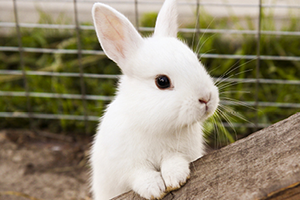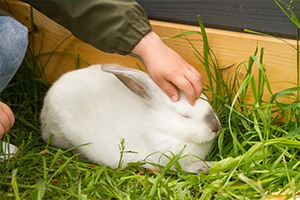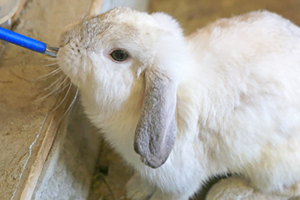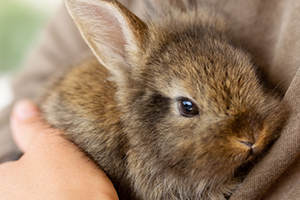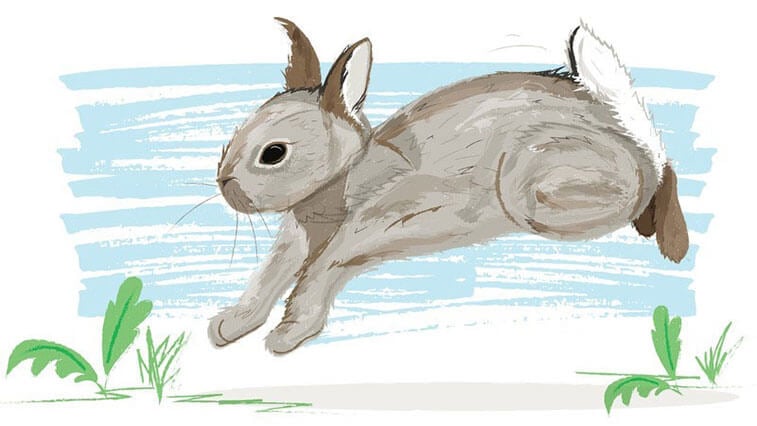You may notice that your rabbit’s nose twitches often and – while it looks cute – there are practical reasons for this, too.
Rabbits twitch their noses to enhance their overall sense of smell. As their noses shift up, the nasal passages open to allow additional airflow into their olfactory senses.
However, rabbits also tend to twitch their noses more if they are too hot or stressed. If your rabbit is frightened, their nose may twitch faster – sometimes up to 120 times a minute.
So, watch out for a change in nose-twitching behaviour – especially on warm days.



